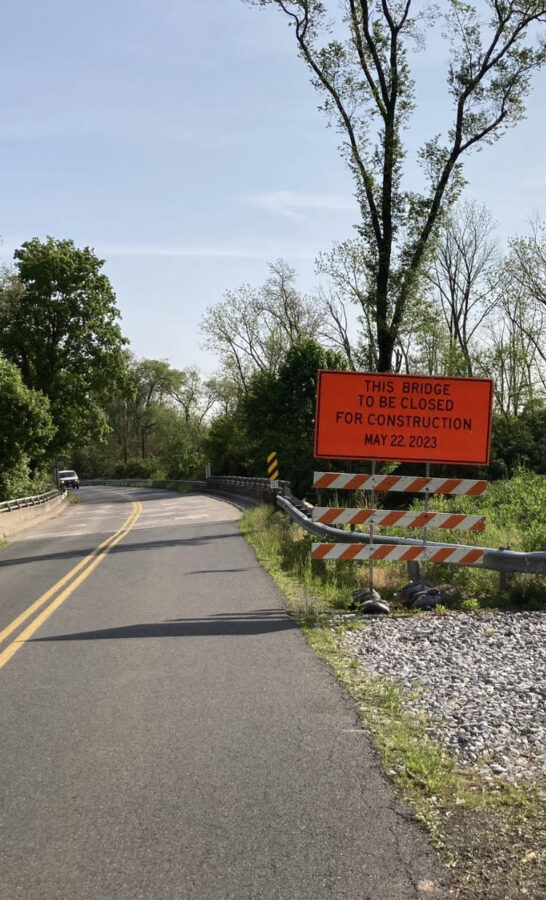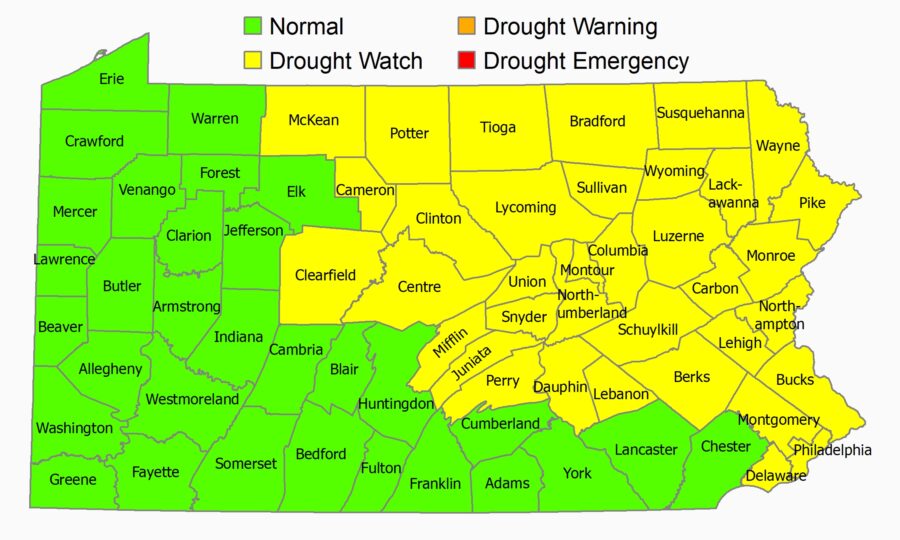Road closure 05-22-2023
 Click HERE for the detour:
Click HERE for the detour:
County wide burn ban
Update April 21st for Berks County Resolution 156-2023.
The county has amended Resolution 151-2023 to state that the burn ban shall not apply to open outdoor burning that is directly related to normal agricultural operations within Berks County.
The term “normal agricultural operation” The term “normal agricultural operation” shall have the definition as provided within
Section 952 of Pennsylvania’s “Right-To-Farm” Law (Act 133 of 1982), specifically:
The activities, practices, equipment and procedures that farmers adopt, use or engage in the production and preparation for market of poultry, livestock and their products and in the production, harvesting and preparation for market or use of agricultural, agronomic, horticultural, silvicultural and aquacultural crops and commodities and is:
a. not less than ten contiguous acres in area; or
b. less than ten contiguous acres in area but has an anticipated yearly gross income of at least $10,000.
The term includes new activities, practices, equipment and procedures consistent with technological development within the agricultural industry. See3 P.S. § 952.
All other provisions of Resolution 151-2023 shall remain unchanged and in full force and effect as set forth therein.
Click here for the full text of Resolution 156-2023.
—
DEP Declares Drought Watch for 36 Counties, Asks for Voluntary Water Conservation
FOR IMMEDIATE RELEASE
August 31, 2022
Map included
DEP Declares Drought Watch for 36 Counties, Asks for Voluntary Water Conservation
Harrisburg, PA –The Pennsylvania Department of Environmental Protection (DEP) today announced the Commonwealth Drought Task Force has declared a drought watch for 36 counties and asks for voluntary water conservation in those counties.
“A few counties have experienced very dry conditions over the summer, and a number of others have inched into increasingly dry conditions in recent weeks. We’re asking Pennsylvanians in all of these counties to use water wisely and follow simple water conservation tips to ease the demand for water,” said DEP Acting Secretary Ramez Ziadeh.
The following counties are on drought watch: Berks, Bucks, Bradford, Cameron, Carbon, Centre, Clearfield, Clinton, Columbia, Dauphin, Delaware, Juniata, Lackawanna, Lebanon, Lehigh, Luzerne, Lycoming, McKean, Mifflin, Monroe, Montgomery, Montour, Northampton, Northumberland, Perry, Philadelphia, Pike, Potter, Schuylkill, Snyder, Sullivan, Susquehanna, Tioga, Union, Wayne, and Wyoming. For a map of drought declarations that’s updated daily, see the DEP drought web page.
Residents on drought watch are asked to reduce their individual water use by 5 to 10%, or a reduction of three to six gallons of water per day.
DEP is notifying all water suppliers in these counties of the need to monitor their supplies and be prepared by updating their drought contingency plans as necessary. Varying localized conditions may lead water suppliers or municipalities to ask residents for more stringent conservation actions.
At this time, two public water suppliers are requiring residents to reduce their water use: Galeton Borough Water Authority in Potter County and Waterville Water Association in Lycoming County.
Six suppliers are asking residents to voluntarily reduce their water use:
- BCI Municipal Authority, Clearfield County
- Driftwood Boro, Cameron County
- Jersey Shore Area Joint Water Authority, Lycoming County
- Lock Haven, Clinton County
- Palmerton Municipal Water Authority, Carbon County
- Pennsylvania American Water Company – Bangor District, Carbon County
Ways to Conserve Water at Home
There are many ways to conserve water at home, including:
- Run water only when necessary. Don’t let the faucet run while brushing your teeth or shaving. Shorten the time you let the water run to warm up before showering.
- Run the dishwasher and washing machine less often, and only with full loads.
- Water your garden in the cooler evening or morning hours, and direct the water to the ground at the base of the plant, so you don’t waste water through evaporation.
- Water your lawn only if necessary. Apply no more than 1 inch of water per week (use an empty can to determine how long it takes to water 1 inch). Avoid watering on windy and hot days. This pattern will encourage healthier, deeper grass roots. Over-watering is wasteful, encourages fungal growth and disease, and results in shallow, compacted root systems that are more susceptible to drought.
- When mowing your lawn, set the blades to 2-3 inches high. Longer grass shades the soil, improving moisture retention. It also grows thicker and develops a deeper root system, so it can better survive drought.
- Check for and repair household leaks. For example, a leaking toilet can waste up to 200 gallons of water daily.
- Sweep your sidewalk, deck, or driveway instead of hosing it off.
- Replace older appliances with high-efficiency, front-loading models that use about 30 percent less water and 40-50 percent less energy.
- Install low-flow plumbing fixtures and aerators on faucets.
- Set up a rain barrel to be ready to repurpose rain when it does fall. For information, see this Penn State Extension guide.
Find more tips at the U.S. Environmental Protection Agency.
How DEP Determines Drought Conditions
To determine drought conditions, DEP assesses information on public water supply levels and data on four indicators: precipitation, surface water (stream and river) flow, groundwater level, and soil moisture. Declarations aren’t based on one indicator alone, such as precipitation.
The DEP Drought Coordinator monitors the indicators in close partnership with the U.S. Geological Survey (USGS), which maintains gauges in streams and wells in many locations across Pennsylvania.
There are normal ranges for all four indicators. DEP makes drought status recommendations after assessing departures from these ranges for all indicators for periods of 3-12 months. For a map that’s updated daily to show the status of all four indicators for each county, see the USGS Pennsylvania drought condition monitoring website.
DEP shares these data and its recommendations with the state and federal agencies and other organizations that make up the Commonwealth Drought Task Force. Drought watch and warning declarations are determined by DEP, with the concurrence of the task force.
Drought emergency declarations follow the same process, with final approval by the governor. No county is in drought warning or emergency status at this time.
For more information on how DEP monitors conditions and makes drought status declarations, see the drought management fact sheet.
The next Commonwealth Drought Task Force meeting will be on Tuesday, September 13, 2022, at 1:00 PM.
MEDIA CONTACT: Deb Klenotic, 717-783-9954

